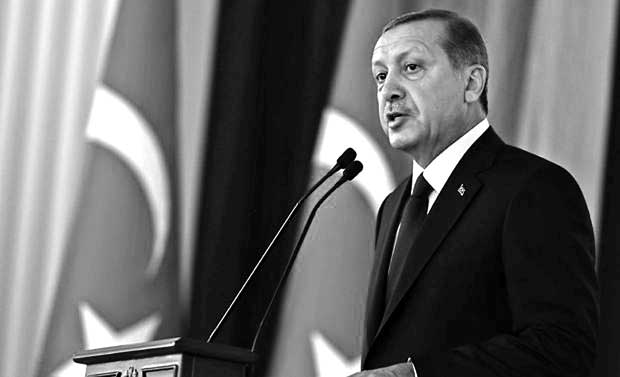The dangers of populism waxing
8 April 2017 12:19 am Views - 2179

The long talked-about referendum in Turkey will happen on April 16. In effect voters have to decide whether president Recep Erdogan, in theory the incumbent of a relatively modest political post, should now be given the powers of the president and the prime minister together. Combined with a large majority in Parliament he would have enormous power to shape Turkey around his pro-Islamic agenda. Although working within a democratic system, Erdogan is in many ways a populist, rather in the mould of President Donald Trump.
Shortly after his Justice and Development Party first won an election in 2003 I was in Turkey and my first question to the people I interviewed was does the party have a “secret agenda” -- that is whether it was planning to make the country Islamist at some future date. “Definitely not,” was the almost universal response.
How wrong they were. Or perhaps they weren’t. Maybe over the years Erdogan has changed 
"The Islamist forces so strong today would have been marginalised by the embrace of Western Europe and the fervour in most parts of Turkey about becoming a member of the most important alliance in history"
The worrying thing for the EU is not just Turkey or the role model of Trump but that a number of its member countries, all former members of the Soviet-controlled Warsaw Pact, a military and political alliance, are going the same way (albeit not of course Islamist).
In Hungary in 2010, a EU member, Viktor Orban led his Fidesz Part back to power and then immediately started to eviscerate the country’s checks and balances. He changed the constitution and electoral code in his party’s favour. In the Balkans the governments there soon followed. Even though they had applied to join the EU, the populist agenda -- which in its extreme form had brought about the wars in Yugoslavia in 1991 -- was surging forward. Two years ago populist leaders began vigorously stirring the pot over immigration.
In Poland, also a EU country, it elected a government in 2015 that has made changes at an even faster pace. It paralyzed the Constitutional Court, turned the sober public broadcaster into a party mouthpiece and hounded the media.
Today we see two other members, Romania and Bulgaria -- which were prematurely and mistakenly given EU membership -- sliding in the same direction, not just because of populism but because of the countries’ deep and ubiquitous corruption and their appalling treatment of their large gypsy population. Thanks to the Syrian and Iraqi massive refugee exodus last year anti-immigration sentiment has grown by leaps and bounds, even though in reality there are few of them knocking at their door.
Today Freedom House, a well-respected American institution, in its new report, “Nations in Transit”, argues that “populism has seized on deep frustrations with the EU and post-Cold War socio-economic model, capitalizing on fears of eroding identity, economic insecurity and inequality and de-democratization are possible. The populist movement should be taken as a call to shake off the dangerous assumption that progress is inevitable”.
"With Brexit one can see signs that populism and nationalism can cut deep, even in a country such as Britain, that is the father of parliamentary democracy. Immigration was the issue that most divided the electorate"
With Brexit one can see signs that populism and nationalism can cut deep, even in a country such as Britain, that is the father of parliamentary democracy. Immigration was the issue that most divided the electorate. The populists, wanting to leave the EU, blatantly lied about the political and economic cost of immigration and so won the plebiscite.
In France, the greatest European populist of them all, Marine Le Pen, looks ready to trounce many of her mainstream opponents in the coming election.
If Europe is to defend liberal democracy it must strengthen European institutions and hold renegades to account. Why should dissident, anti-human rights, countries receive large European funds? The “bend but don’t break” policies have now been shown to be a failure.
As for Turkey, it is not too late to open EU doors for its membership. I still believe if the Turkish electorate were given a choice between Asia and Islamism and Europe and secularism they would choose Europe.